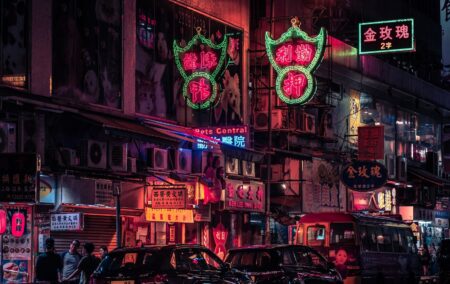The US-China trade war spotlights China’s need for exports to offset structurally weak domestic consumption − neither their economy nor ours prioritises middle-class growth.
SA’s per capita GDP is half of China’s, which is just below the global average of $14k. Both countries’ domestic consumption is insufficient to achieve full employment. Our extreme youth unemployment is about three times China’s, which, after four decades of nearly 10% annual growth, is about 50% higher than the global average.
Neither China’s economy nor ours is designed to create an affluent, broadly middle-class society. China is many decades from achieving such an outcome and, given how most of our young adults will never find high-productivity employment, this will remain out of reach for SA for at least three generations.
Sustaining high GDP growth does not guarantee broad prosperity. After the death of Mao Zedong, the last of the co-founders of the Chinese Communist Party (CCP), China sought high growth by adopting Japan’s export-led growth model. The CCP prioritised manufacturing competitiveness, infrastructure and housing. This is quite different from prioritising household prosperity.
Most of China’s rapidly growing export profits were captured by the state and directed toward building factories, infrastructure and housing. This was made easier by suppressing both wages and returns on investment. Households saved much of their modest wages and, as bank deposits paid low rates, there was a low-cost source of capital to fund fixed investments.
This strategy led to an extraordinary build out of infrastructure, commercial real estate and housing. Early successes were followed by overinvesting and China’s population is now rapidly ageing and declining, with a mostly porous social welfare net. Twenty years ago China had 10 workers for every retiree. A decade from now that ratio is expected to be three to one.
This situation has long been predictable. China’s leaders could have focused on advancing household prosperity to build domestic purchasing capacity. Instead, they chose to weaponise their formidable manufacturing capacity by subsidising key sectors in pursuit of global dominance. Electric cars, computer chips and solar panels were among the sectors prioritised.
Gambled
Cheating on trade agreements is common but China’s leaders have gambled that they can exploit the global trading system on a grand scale. It is difficult for other countries to counter China’s strategy as countermeasures will spur inflation, disrupt global supply chains and risk reprisals from China.
The key question hanging over the global economy is whether President Trump’s recent on-and-off tariff announcements will produce a concerted effort to constrain China’s pursuit of global dominance in key sectors. Trump needs allies in Europe and Asia to at least partially replicate the US’s high tariffs on China. As large European economies, particularly Germany, are extremely vulnerable to China’s sector-dominance strategy, they are seen by the Trump administration as being open to persuasion.
Perhaps the trickiest aspects of Trump’s strategy are the threats of inflation and supply disruptions in the US. Unlike many European economies which face long-term decline if they don’t reform, the US economy was in good shape prior to Trump’s decision to profoundly disrupt global trade. His best-case scenario is that top allies accommodate his anti-China tactics while tariff income and Doge cuts reduce the US’s primary vulnerability, a gaping fiscal deficit.
China’s core vulnerability traces to its failure to support robust domestic consumption. Their one-child policy has been relaxed but few young Chinese adults presume they could afford to raise more than one child.
The ANC has done something similar. While our demographics are healthy, as most young South African adults are extremely unproductive, most of them will go through life unemployed and poor. The ANC harbours communist sympathies yet its policies are primarily guided by patronage.
Of our employed young adults, far too many have low-productivity civil service jobs. Unlike China, only a sliver of our young adults add value to exports on purely commercial terms. That is, the ANC’s patronage devotion has led to localisation policies despite our domestic consumption capacity being far too modest to achieve a normal level of employment. Such policy biases have entrenched the world’s most severe youth unemployment crisis.
Spending power
Worker productivity in the US has been steadily increasing for ten generations and returns on investments have been generally favourable. Companies, workers and consumers have all benefited to the point that US per capita income is more than five times the global average. Not all Americans are affluent but enough are that the country is home to a deep reservoir of spending power. Thus US manufacturing trade deficits run at nearly a trillion dollars a year and this funds millions of jobs in countries which run trade surpluses with the US.
Various European commentators are beginning to acknowledge that Trump more resembles a symptom than the source of their problems. They didn’t take the Russian or Chinese threats seriously and now they must negotiate with a US president who is guided not by pretensions regarding what could be but rather by the reality of threats and opportunities.
The ANC’s policy pitfalls are being simultaneously rejected. The budget process debacle reflects how patronage has been unaffordably overindulged. Meanwhile, shifting geopolitics are demonstrating that the ANC’s theme for this year’s SA-hosted G20, “solidarity, equality, and sustainability”, reflects stale ideals amid a new era of realpolitik.
Due to failures to develop broadly affluent middle-class societies, both SA and China must rely on exporting to achieve adequate growth. Yet neither country’s foreign policies are attuned to how Western countries still offer the most lucrative markets for goods exporters.
The views of the writer are not necessarily the views of the Daily Friend or the IRR.
If you like what you have just read, support the Daily Friend

